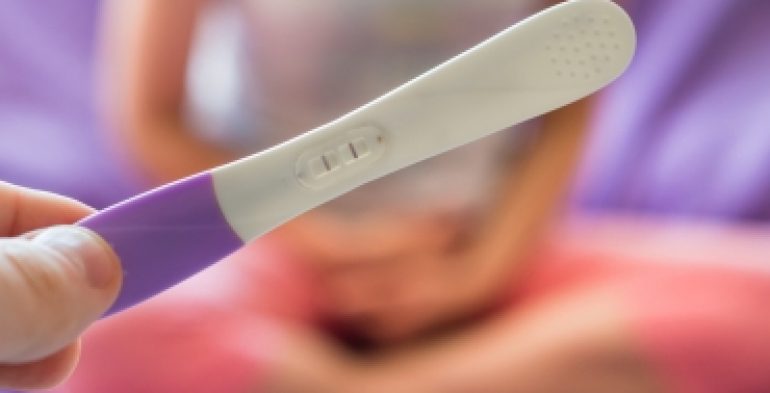
Pregnancy tests are designed to detect if a woman’s urine or blood contains a hormone called human chorionic gonadotropin (hCG). This hormone is produced right after a fertilized egg attaches to the wall of a woman’s uterus. This usually happens between 6-12 days after fertilization. In the case of pregnancy, levels of (hCG) continue to rise rapidly, doubling every two to three days. Levels of hCG increase steadily in the first 14 to 16 weeks following the last menstrual period (LMP), peaking at around the 14th week, and then decreasing gradually. The amount of hCG increase in early pregnancy can give information about the pregnancy and the health of the baby. Soon after delivery, hCG can no longer be found in blood or urine.
Home tests:
Home pregnancy tests are quick and easy to use; they work on detecting the presence of (hCG) in urine. To guarantee more accuracy, it is better to take this test a week after a missed period. Home pregnancy tests require the test stick to be dipped into the urine sample or held in the urine stream while urinating for five to ten seconds. A few minutes later, the test stick reveals the result. It is essential to carefully follow the package directions. Usually a first-morning sample is best as the urine is the most concentrated and has enough HCG to be detected.
Urine home pregnancy tests are about 97% accurate if done after a week of a missed period, while blood tests are even more sensitive and accurate.
Positive results are more likely to be accurate than negative results. It is rare to get a false positive result which means that the woman is not pregnant while the test says she is. False positive results might happen in some cases such as: pregnancy loss soon after the fertilized egg attached to the uterine lining, taking a fertility drug that contains HCG, ectopic pregnancy or menopause, the presence of blood or protein in urine, taking certain drugs, such as tranquilizers, anti-convulsants, or hypnotics.
False negative results are more likely to occur than false positive in some cases such as: taking the test too early, checking the test results too soon, using diluted urine, taking medications such as diuretics or antihistamines, the test is past its expiration date or the test directions were not followed.
When the test is negative but pregnancy is still suspected, the test should be repeated in 1 week.
Some home pregnancy tests suggest repeating the test one week later regardless of the results.
In the case of getting two different results, it is recommended to consult your doctor for confirmation of pregnancy.









